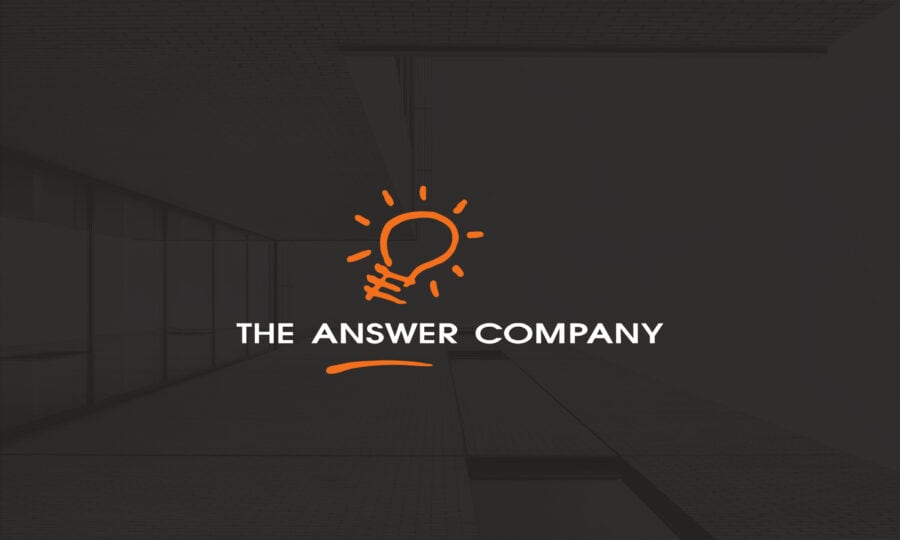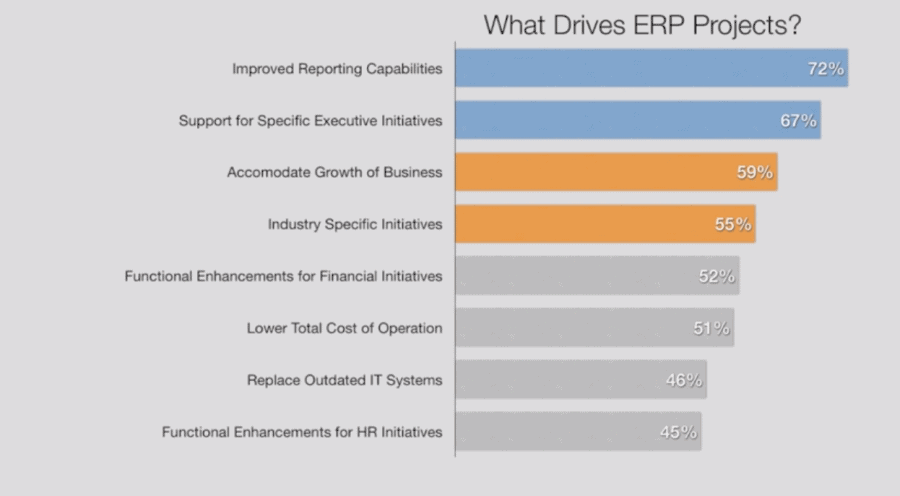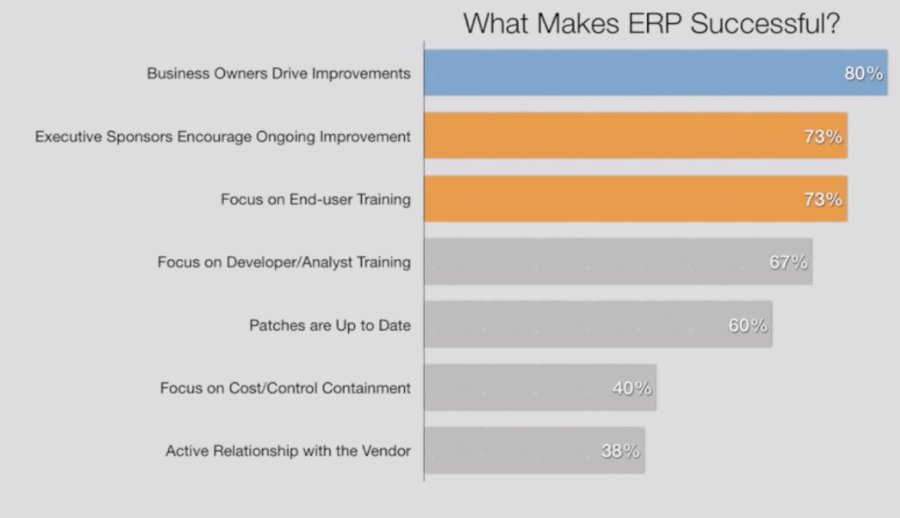What is the best ERP system?
What is the best ERP system? Sage ERP X3. I am only joking, of course. In all actuality, this may appear to be a simple question, but appearances can be deceiving. Picking the right ERP system (Enterprise Resource Planning) is a complex decision. One that takes into account everything from current challenges the company is facing, how it is planning to grow, and how employees will take to the changes in work process.
On top of all this, there is the actual ERP project to manage! Managing the ERP project right is the only way to ensure the investment is worthwhile and the solution gets implemented successfully.
At the bottom of this article you will find a great video where George Goodall, Senior Research Analyst at InfoTech Research Group discusses factors to consider when choosing an ERP platform. Mr. Goodall’s video is awesome in that it focuses on the basics of a good ERP solution, bringing hard quantitative research figures to answer the question as to what is the best ERP system.
So, what is the best ERP system?
Well, it may not answer the question in a way you’d expect. Instead it raises more appropriate questions that help you, the executive making decisions on an ERP project, decide what is the best ERP system for your company.
According to the folks at Info Tech, there are three main questions that rule an ERP project:
- What are the drivers of the ERP project, or in other words, why is the business doing an ERP project?
- What kind of challenges can a business expect to encounter during an ERP project?
- What are some of the key ongoing operational issues of managing an ERP system?
This is a very refreshing take, and useful advice, on the implementation of ERP systems. While the first question is relatively straight forward (see the graph below for the results Info Tech discovered, and for a full explanation watch the video), the second two shed light into issues that don’t often get discussed in company’s meeting rooms. Here, the questions are turned towards building an ERP system that is functional and being used to the full benefit of the company in the long run by doing things right during implementation.
In fact, Info Tech’s research unveiled the three key factors that govern overall project success. These were:
- Anticipating and managing change for end-users: if users don’t end up actually using the system, the project is a failure (read more about ensuring you account for end-users during the ERP project). For this, good user interface is important but so is the ability to support actual business processes.
- Appropriately documenting business processes: the processes that a company runs today need to be properly documented and set up within the ERP systems.
- Managing the transition from implementation to operations: and I quote, “No technology can affectively address this issue. Success here is about finding the right partners for both technology and implementation. ERP is more than an application, it’s a long term relationship with solutions providers.”
The last point is one of crucial importance and deserving of further attention. Implementing ERP, which includes documenting business processes, creating workflows and reports, and training employees at various levels, is an arduous task that must be approached with methodical pragmatism. The kind of methodology that an ERP partner only gets with years of experience and hundreds of projects under one’s belt. Keep this in mind when entering an ERP project.
There are five key points that differentiate the best ERPs from all the rest, and surprisingly (or not), they are very technical in nature:
- Data integration: the ability to incorporate data from across the business
- Workflow: the ability to create and manage business processes within the solution
- Financial consolidation: functionality to incorporate data from different operating units and different countries.
- Budgeting: flexible data models that allow for budgeting practices
- Data management: system should inherently encourage clean data.
The video concludes with examining how Sage ERP X3 fits into all five of these categories, due to its web-based architecture and modern design. This article is no substitute for the actual video, but it should give you an idea that it’s just as important to focus on how the ERP project will go, as to why investments in the ERP solution were made in the first place.
{youtube}XRTZrvLSHWo{/youtube}



